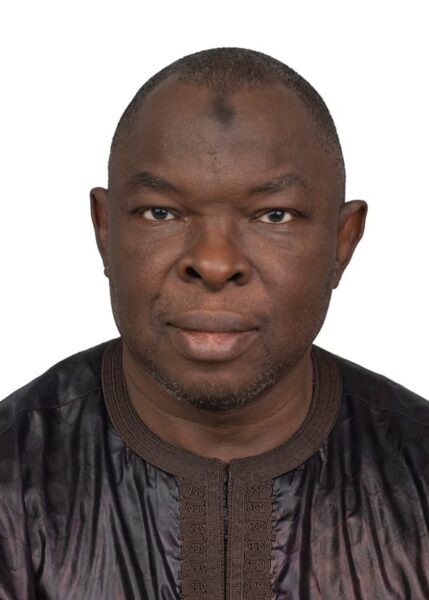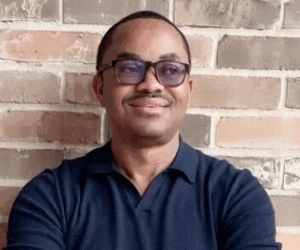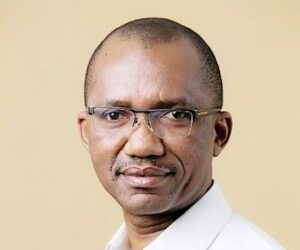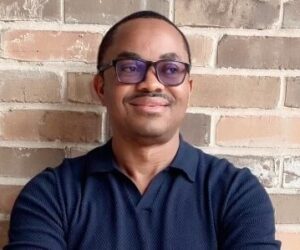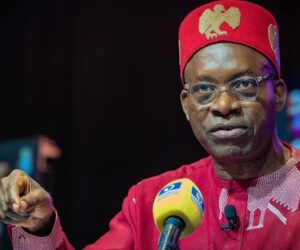Nigeria’s Northern region, called “Arewa” in Hausa language, comprises states in the North-West, North-East, and North-Central zones. The region is the most ethnically, linguistically, religiously, and culturally heterogeneous part of Nigeria. Yet, it is the most politicised.
Since 1999, however, the Arewa political hegemony has been progressively demolished. If not, why was Abubakar Atiku, a Fulani from the North-East, and the presidential candidate of the Peoples Democratic Party (PDP), not able to clinch the presidency in 2023, even when two Southern candidates – Bola Ahmed Tinubu of the All Progressives Congress (APC) and Peter Obi from the Labour Party (LP) – contested against him?
The issue is not whether Tinubu won by a “narrow margin”, “used money”, “manipulated”, or “rigged” the election. No political force can manipulate, rig, or use money to win elections, if it is not grounded. This was why the APC and PDP could not even get ten per cent of the votes casted in the South-East in 2023.
Come 2027, the Northernisation of politics and politicisation of the North – Arewaism, for short – will be seriously undermined and fail. Its failure, however, will not be caused by Yorubas, Igbos, or “Southerners”. Nor caused by Western and Zionist forces. Its failure will be an implosion from within.
The implosion is already developing from the critical interrogation of the term, Arewa. Indigenous autochthonous movements now argue that the term is not applicable in geography, politics, physiology, or culture. Publicising that every North has a South, and every South has a North. They are questioning which social classes and ethnic groups have benefitted, or are benefiting from Arewaism. They argue that even the term, Arewa, is intellectually and politically deceptive, and should be consigned to the dustbin of history where it truly belongs.
The Hausa movements, for instance, are insisting and demanding that their land be called “Hausaland”. That they are Hausa, not Arewa people. They are fiercely debunking the concept, “Hausa-Fulani”, which was hitherto used to cement Fulani political dominance in Arewa and Nigeria as a whole. They are fiercely maintaining that the concept is baseless, illogical, ahistorical, un-Islamic, and extremely deceptive.
In fact, some Hausa groups are going to the extent of calling on Hausa people married to Fulanis to divorce their wives, and conduct DNA tests to ascertain whether or not the children are theirs.
They are equally calling on Hausas to stop praying behind Fulani clerics, asserting that Fulanis are mainly Fodioists or followers of Uthman Dan Fodio. They are arguing that mosques have been transformed into places of Fulani indoctrination and the devaluation of Hausa identities, history, values, traditions and cultures.
They are further demanding that “Hausa-Fulani” be disused, as the Hausas are physiologically, historically, linguistically, and culturally different from the Fulanis. They have, as a matter of fact, sloganized that “Hausa daban, Fulani daban”, meaning Hausas are different from Fulanis. “Daban” means “different”.
Hausa organisations are tracing their misfortunes, disaster, and underdevelopment to the conquest of their land by “Fulani Jihadists”, led by Dan Fodiyo. They are describing the “Jihad” as un-Islamic, and acts of colonisation, land acquisition, domination, enslavement, and depopulation of Hausas.
The Hausa movements are equally propagating that since the “Jihad”, the Hausas have been virtually excluded from the administration of the state and society. They claim that Hausas have been disallowed from independently pursuing their own Islamic education. Obstructed from acquiring Western education. And blocked from pursuing career in the military, police, intelligence, paramilitary, and other security services. Which was why Hausas never fought in the Nigerian Civil War.
Another group in the North, the Middle-Belters, are continuously crafting their identity, and demanding that their area be officially called “Middle-Belt”, not “North-Central, as they are historically, linguistically and culturally unique and different from the Hausas and Fulanis.
Middle-Belt autochthonous movements are calling on the present generation of Middle-Belters not to commit the mistakes of past generations by blindly believing and fighting to preserve Arewa. They assert that their people sheepishly fought and died to keep Nigeria one, but never gained anything from fighting the Civil War. Rather, they claimed Middle Belters were demobilised, dumped, and ignored after the War.
They argue that General Yakubu Gowon was removed by Arewaists after successfully countering Igbo secession; and that General Theophilus Danjuma and many others were dumped after enthroning the hegemony of Arewaists.
The implosion is also coming from the desire and struggle of the autochthonous movements to own and control their politics. To fully represent themselves, assert their power, control their wealth, tackle insecurity, educate their children, and ensure that peace, democracy, development and social justice take root, grow, flower, and flourish in their areas. These struggles, they asserted, are struggles against Arewaists and Arewaism. And struggle for Nigeria and Africa.
Furthermore, both autochthonous movements have since 2015 began to see and refer themselves as “indigenous” They are claiming the Fulanis are largely responsible for their all-round underdevelopment. They are blaming British imperialism and decades of military misrule for enthroning and entrenching Arewaism and, by extension, Fulani hegemony.
Yes, the movements might be frustrated and their claims debatable. Nevertheless, ideas are ideas. But ideas become a material force when they grip the people.
Besides, they are equally fraternising, socialising, empathising, solidarizing with one another and building alliances with autochthonous movements in the South. Their position is that their struggles are organically connected and dialectically related, and are, therefore, inseparable. They hold that their liberation is a prerequisite for the flourishing and flowering of democracy, development, and social justice in Nigeria.
But equally important, the autochthonous movements are organising to vote against Fulani politicians and their supporters, and enthrone indigenous people in the entire political structure. But they don’t have the political organisations to spearhead their struggles, neither are they entrenched in the dominant political parties.
They, nonetheless, argue such organisations, at this historical point in time, are not needed, and, in fact, must be temporarily avoided. This, they argue, is necessary because in the past their organisations were infiltrated, and their members, activists, and leaders were blackmailed, harassed, victimized, poisoned, and even openly assassinated.
This, they added, was why Northern Elements Progressive Union (NEPU) and the Peoples’ Redemption Party (PRP) never succeeded. So, for them, the present conditions demand new and creative strategies and tactics of struggle, resistance, and activism.
With the increasing reconstruction, reinterpretation, and use of history, and with their new or renewed activism, the Hausa and Middle-Belt autochthonous movements are seriously dealing decisive blows on the Arewaism. They might not totally succeed, but they will surely alter the political temperature and equation in Arewa, come 2027.
Ahmed Aminu-Ramatu Yusuf worked as deputy director, Cabinet Affairs Office, The Presidency, and retired as General Manager (Administration), Nigerian Meteorological Agency, (NiMet). Email: [email protected]

